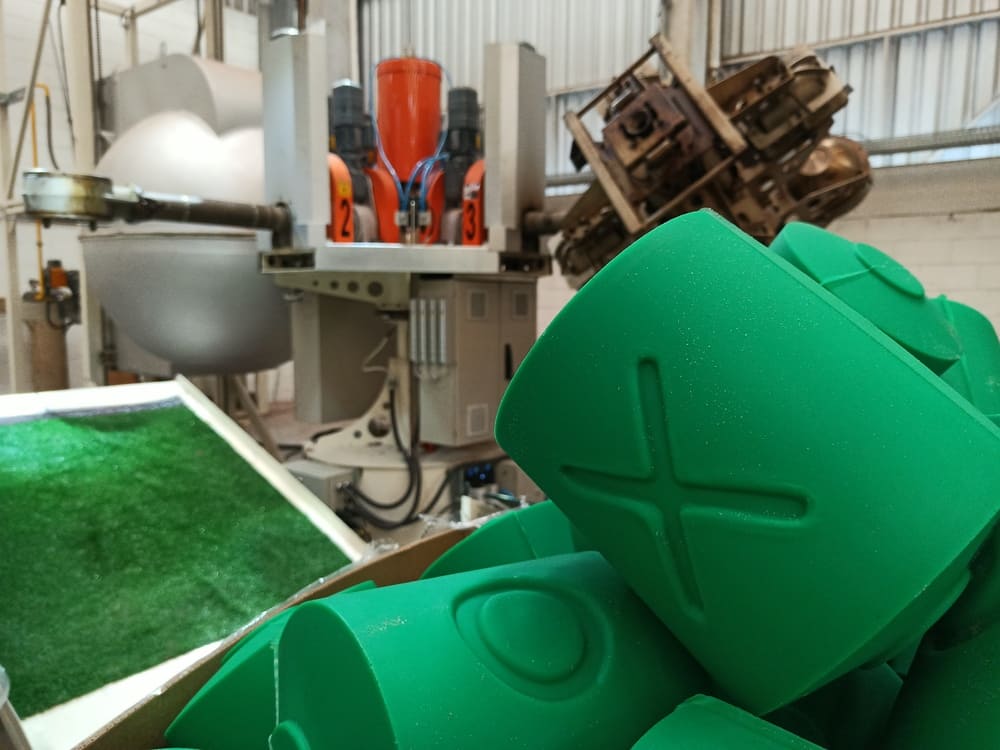The manufacturing of rotomolded parts has become one of the preferred alternatives in the industry. After all, it provides numerous advantages over other processes, such as obtaining more durable, resistant, economical products, without amendments and with more complex designs.
Thanks to these benefits, more entrepreneurs are investing in its implementation. To give you an idea, Rotoline, which is a reference in the sector, had an increase of 51.5% in equipment manufacturing in 2021. For 2022, growth of more than 33% is estimated.
This data, pointed out by the company's commercial director, Raphaeli De Luccas (in an interview with the Plastico.com.br portal), shows how the segment is strengthening and continues to grow.
Faced with so many opportunities, it is natural that investors have doubts about what is more advantageous, whether to outsource the production of rotomolded parts allows for greater alignment with the company's demand. After all, you won't be dependent on large orders and you'll be able to replenish your stock according to order volume.
Understand the pros and cons of outsourcing rotomolded parts production
Also known as rotomolding, the rotational molding process is based on the transformation of thermoplastics. As its name suggests, this is done through machines that obtain parts from the rotation of a mold. But is it really worth outsourcing the process?
Why do many companies choose to outsource?
As it is a new process for many industries in the sector, opting for outsourcing ends up being seen as a safer path. Ultimately, this ensures that the production of rotomolded parts passe por um controle de qualidade, além de uma resposta rápida em situações onde seja necessária alguma intervenção.
Another important point is that outsourced purchases avoid various efforts and investments. We are talking about staff training, infrastructure adaptation, equipment acquisition, etc.
Depending on the volume, the cost-benefit ratio of the products tends to be advantageous. This is because hiring is usually focused on high-demand manufactures. It ends up reducing the cost of the final product.
In which cases is internalization more advantageous?
On the other hand, having its own production of rotomolded parts allows for greater alignment with the company's demand. After all, you won't be dependent on large orders and you'll be able to replenish your stock according to order volume. This preserves the cash balance.
In addition, no matter how expensive the purchase of machinery and the adaptation period may be, the initial investments of rotational molding are lower than those required for other processes.
In the medium and long term, the costs of having production of rotomolded parts ends up paying for themselves. After all, aside from the demand aspect, higher profit margins are possible.
At the same time, owning your own machinery means ensuring you are in control to achieve the excellence you desire.
With full control over your manufacturing processes, you will have more confidence in the qualification of your equipment, the rigidity of your processes, and the investments made in improvements and innovation. Remember that all of this impacts customer satisfaction.
Ensuring the correct choice of equipment
As you can see, outsourcing is interesting if you are willing to place large orders and are confident that the partner you choose has the necessary experience and commitment to your needs.
On the other hand, in-house production of rotational molded parts is more suitable if you are willing to recoup your return on investment over a slightly longer period, but want full control over your demand, production excellence and profit margins benefit.
In all cases, it is necessary to certify the quality of the equipment. This applies to machines used by your suppliers or purchased by your company. These must offer all required elements to produce the parts reliably, safely and to the highest quality standard.
Rotoline is a reference in the sector and has been creating state-of-the-art equipment for rotational molding for more than 20 years. Present in the 5 continents and more than 30 countries, with a factory in Brazil and headquarters in the United States.
No matter what you want in your production of rotomolded parts, our machinery can make your project a reality.
Click here and contact Rotoline. Our team is ready to help you!





